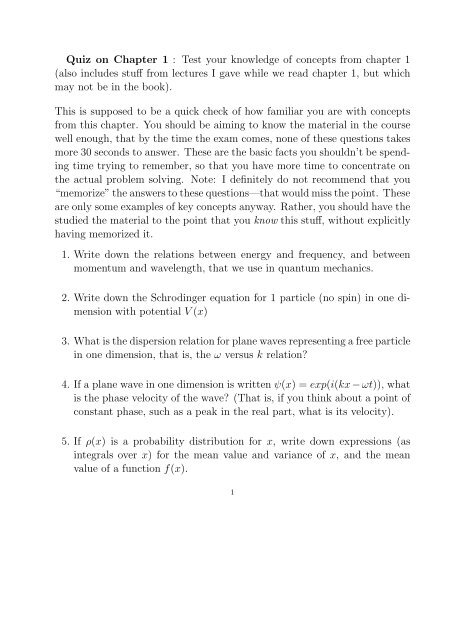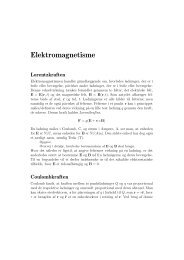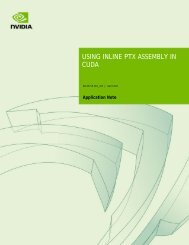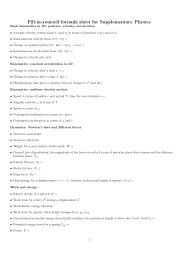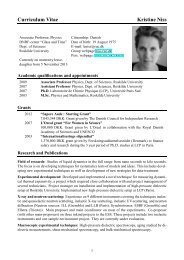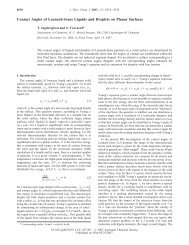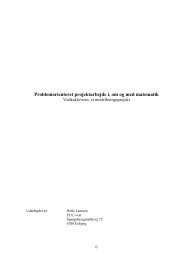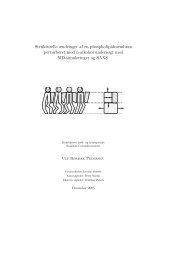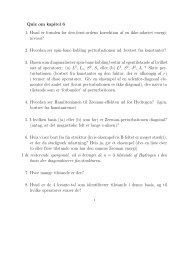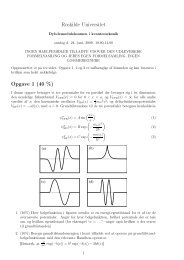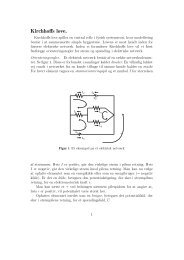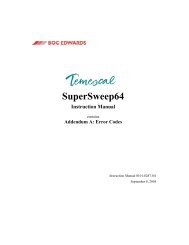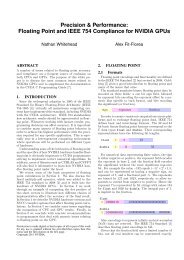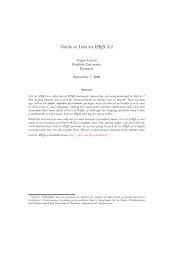Quiz on Chapter 1 : Test your knowledge of concepts from ... - dirac
Quiz on Chapter 1 : Test your knowledge of concepts from ... - dirac
Quiz on Chapter 1 : Test your knowledge of concepts from ... - dirac
You also want an ePaper? Increase the reach of your titles
YUMPU automatically turns print PDFs into web optimized ePapers that Google loves.
<str<strong>on</strong>g>Quiz</str<strong>on</strong>g> <strong>on</strong> <strong>Chapter</strong> 1 : <strong>Test</strong> <strong>your</strong> <strong>knowledge</strong> <strong>of</strong> c<strong>on</strong>cepts <strong>from</strong> chapter 1<br />
(also includes stuff <strong>from</strong> lectures I gave while we read chapter 1, but which<br />
may not be in the book).<br />
This is supposed to be a quick check <strong>of</strong> how familiar you are with c<strong>on</strong>cepts<br />
<strong>from</strong> this chapter. You should be aiming to know the material in the course<br />
well enough, that by the time the exam comes, n<strong>on</strong>e <strong>of</strong> these questi<strong>on</strong>s takes<br />
more 30 sec<strong>on</strong>ds to answer. These are the basic facts you shouldn’t be spending<br />
time trying to remember, so that you have more time to c<strong>on</strong>centrate <strong>on</strong><br />
the actual problem solving. Note: I definitely do not recommend that you<br />
“memorize” the answers to these questi<strong>on</strong>s—that would miss the point. These<br />
are <strong>on</strong>ly some examples <strong>of</strong> key c<strong>on</strong>cepts anyway. Rather, you should have the<br />
studied the material to the point that you know this stuff, without explicitly<br />
having memorized it.<br />
1. Write down the relati<strong>on</strong>s between energy and frequency, and between<br />
momentum and wavelength, that we use in quantum mechanics.<br />
2. Write down the Schrodinger equati<strong>on</strong> for 1 particle (no spin) in <strong>on</strong>e dimensi<strong>on</strong><br />
with potential V (x)<br />
3. What is the dispersi<strong>on</strong> relati<strong>on</strong> for plane waves representing a free particle<br />
in <strong>on</strong>e dimensi<strong>on</strong>, that is, the ω versus k relati<strong>on</strong><br />
4. If a plane wave in <strong>on</strong>e dimensi<strong>on</strong> is written ψ(x) = exp(i(kx −ωt)), what<br />
is the phase velocity <strong>of</strong> the wave (That is, if you think about a point <strong>of</strong><br />
c<strong>on</strong>stant phase, such as a peak in the real part, what is its velocity).<br />
5. If ρ(x) is a probability distributi<strong>on</strong> for x, write down expressi<strong>on</strong>s (as<br />
integrals over x) for the mean value and variance <strong>of</strong> x, and the mean<br />
value <strong>of</strong> a functi<strong>on</strong> f(x).<br />
1
6. Write down the differential form <strong>of</strong> the momentum operator in <strong>on</strong>e dimensi<strong>on</strong>.<br />
2


